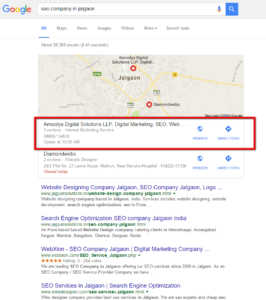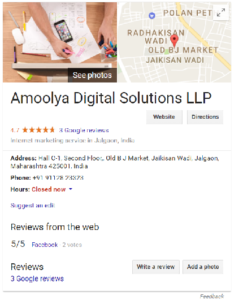While referrals are still a driving force for attracting new dental patients, 

more and more people are turning to the internet to find a dentist.
Dental practices that are serious about growing their patient base and keeping the schedule booked need to have a solid digital presence and marketing strategy.
If you are struggling to gain traction online, your practice could be focusing on the wrong areas. In this article, we’ll look at a few crucial bases that you need to cover to attract more new patients online.
Optimize Your Website for Conversions
Putting fashion before function is an extremely common mistake that dental practices make day after day. There’s nothing wrong with spending top dollar on an impeccable design, but don’t forget to make sure your website is optimized for conversions.
The first step in conversion optimization is making sure potential patients visiting your website know exactly what you want them to do. That means using a strong and immediate call to action as your main heading.
You’ll also want to make sure your phone number is prominently displayed and easy to read. A prominently placed form fill above the fold will appeal to visitors who would rather request information or schedule a visit online.
Claim Your Google and Bing Business Listings

If you haven’t already done so, be sure to claim your local business listings on both Google and Bing. This will literally put you on the map when people search for dental practices in your area. When someone in your practice area is searching for a new dental office, you’ll want your listing to show up.
Your business profile has an added benefit of allowing patients to leave reviews. Once you start getting those five-star reviews, the search engines will see that you are a trusted dental practice with a great reputation. That’s how you get on the fast track to better local search engine results.
Of course, more importantly, potential patients who find your listing on Google or Bing will be far more likely to visit your website and schedule an appointment if they see a bunch of five star reviews.
Do Some Local SEO

The vast majority of search engine users don’t venture past the first page of search results. If you’re not showing up on page one, you might as well not show up at all. While making sure your Google and Bing business pages are claimed is a great first step, there are things you can do on-site to help improve your rankings.
Google alone uses at least 200 ranking factors to determine where pages should show up and some factors hold more weight than others. Your primary focus should be making sure you have plenty of high-quality content that is useful and informative for readers.
Remember, search engines rank pages, not websites. That means each page should be themed around a specific service and specific keywords, such as cosmetic dentistry or teeth whitening. Whatever you do, don’t just try to cram a bunch of keywords into your content. That may have worked in 2002, but times have changed.
Search engine algorithms have become much more sophisticated, which means context and usefulness holds more weight than what keywords you use. Here’s a couple content hints.
- Use focus keyword once or twice in body
- Use focus keyword in main heading
- Use name of the city you wish to target
- Shoot for at least 700 words of great content
- Use focus keyword in URL
- Use focus keyword in meta description along with a strong call to action
When writing content, think about some of the most common questions patients have about a certain procedure and try to answer those questions.
The above mentioned SEO optimizations are only the first step. If you are serious about ranking higher, you may want to look into working with a digital marketing agency. A professional SEO strategist will implement on-site and off-site optimizations at a deeper level, right down to the coding of your website.
Results don’t happen overnight, but working with an agency can set you up for long term rankings.
Take Advantage of PPC Marketing

Organic rankings don’t come instantly, but paid search engine results do. Do a simple Google search of a term you want to rank for. You’ll notice that every result above the fold is a paid search result (assuming the keyword you choose is somewhat or very competitive).
You won’t even see the organic listings without scrolling down. A well-managed PPC campaign will drive new leads while you work to improve your organic rankings. It’s important to note that you are paying for every click so it’s vitally important to choose the right keywords and drive traffic to a page that is optimized for conversions.
Just like SEO, hiring a digital agency to manage your PPC ads can save you time and money. Getting highly relevant traffic, creating compelling ad copy and converting visitors to patients takes a serious time commitment and a good amount of technical skill.
Boost Your Social Media Presence with Effective Content Marketing
Don’t just use your social media page to promote yourself. Use it to spread interesting and shareable content. Maybe a new study just came out about oral health trends or a new development in dental technology.
That type of information would make a great infographic. Work with a designer to transform that data into an interesting and visually appealing infographic. Post it on your blog and share it on social media. Great content will be shared and garner valuable backlinks to your website. The result is more traffic, better search engine results and more authority in your niche.
Conclusion
There’s no magic bullet or secret sauce when it comes to good online marketing. If any marketer tries to tell you there is, run away. The path to solid, long term results is paved with hard work, time and quality. It’s important to remember that the above-mentioned tactics require diligence. There’s no “set and forget” button in the digital world. You need to constantly monitor, optimize and tweak as needed to fine tune your campaigns and get the ROI you are looking for.
Leave a Reply